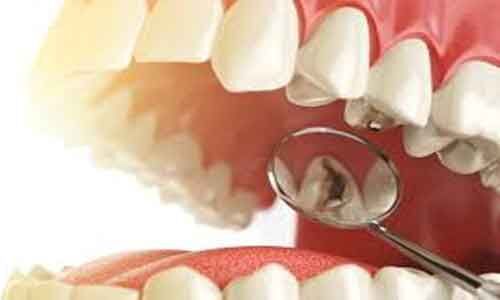- Home
- Medical news & Guidelines
- Anesthesiology
- Cardiology and CTVS
- Critical Care
- Dentistry
- Dermatology
- Diabetes and Endocrinology
- ENT
- Gastroenterology
- Medicine
- Nephrology
- Neurology
- Obstretics-Gynaecology
- Oncology
- Ophthalmology
- Orthopaedics
- Pediatrics-Neonatology
- Psychiatry
- Pulmonology
- Radiology
- Surgery
- Urology
- Laboratory Medicine
- Diet
- Nursing
- Paramedical
- Physiotherapy
- Health news
- Fact Check
- Bone Health Fact Check
- Brain Health Fact Check
- Cancer Related Fact Check
- Child Care Fact Check
- Dental and oral health fact check
- Diabetes and metabolic health fact check
- Diet and Nutrition Fact Check
- Eye and ENT Care Fact Check
- Fitness fact check
- Gut health fact check
- Heart health fact check
- Kidney health fact check
- Medical education fact check
- Men's health fact check
- Respiratory fact check
- Skin and hair care fact check
- Vaccine and Immunization fact check
- Women's health fact check
- AYUSH
- State News
- Andaman and Nicobar Islands
- Andhra Pradesh
- Arunachal Pradesh
- Assam
- Bihar
- Chandigarh
- Chattisgarh
- Dadra and Nagar Haveli
- Daman and Diu
- Delhi
- Goa
- Gujarat
- Haryana
- Himachal Pradesh
- Jammu & Kashmir
- Jharkhand
- Karnataka
- Kerala
- Ladakh
- Lakshadweep
- Madhya Pradesh
- Maharashtra
- Manipur
- Meghalaya
- Mizoram
- Nagaland
- Odisha
- Puducherry
- Punjab
- Rajasthan
- Sikkim
- Tamil Nadu
- Telangana
- Tripura
- Uttar Pradesh
- Uttrakhand
- West Bengal
- Medical Education
- Industry
Tooth loss associated with increased cognitive impairment and dementia: Study

Tooth loss is a risk factor for cognitive impairment and dementia--and with each tooth lost, the risk of cognitive decline grows, according to a new analysis led by researchers at NYU Rory Meyers College of Nursing and published in JAMDA: The Journal of Post-Acute and Long-Term Care Medicine. However, this risk was not significant among older adults with dentures, suggesting that timely treatment with dentures may protect against cognitive decline.
About one in six adults aged 65 or older have lost all of their teeth, according to the Centers for Disease Control and Prevention. Prior studies show a connection between tooth loss and diminished cognitive function, with researchers offering a range of possible explanations for this link. For one, missing teeth can lead to difficulty chewing, which may contribute to nutritional deficiencies or promote changes in the brain. A growing body of research also points to a connection between gum disease--a leading cause of tooth loss--and cognitive decline. In addition, tooth loss may reflect life-long socioeconomic disadvantages that are also risk factors for cognitive decline.
"Given the staggering number of people diagnosed with Alzheimer's disease and dementia each year, and the opportunity to improve oral health across the lifespan, it's important to gain a deeper understanding of the connection between poor oral health and cognitive decline," said Bei Wu, PhD, Dean's Professor in Global Health at NYU Rory Meyers College of Nursing and co-director of the NYU Aging Incubator, as well as the study's senior author.
Wu and her colleagues conducted a meta-analysis using longitudinal studies of tooth loss and cognitive impairment. The 14 studies included in their analysis involved a total of 34,074 adults and 4,689 cases of people with diminished cognitive function.
The researchers found that adults with more tooth loss had a 1.48 times higher risk of developing cognitive impairment and 1.28 times higher risk of being diagnosed with dementia, even after controlling for other factors.
However, adults missing teeth were more likely to have cognitive impairment if they did not have dentures (23.8 percent) compared to those with dentures (16.9 percent); a further analysis revealed that the association between tooth loss and cognitive impairment was not significant when participants had dentures.
The researchers also conducted an analysis using a subset of eight studies to determine if there was a "dose-response" association between tooth loss and cognitive impairment--in other words, if a greater number of missing teeth was linked to a higher risk for cognitive decline. Their findings confirmed this relationship: each additional missing tooth was associated with a 1.4 percent increased risk of cognitive impairment and 1.1 percent increased risk of being diagnosed with dementia.
"This 'dose-response' relationship between the number of missing teeth and risk of diminished cognitive function substantially strengthens the evidence linking tooth loss to cognitive impairment, and provides some evidence that tooth loss may predict cognitive decline," said Xiang Qi, a doctoral candidate from NYU Meyers.
"Our findings underscore the importance of maintaining good oral health and its role in helping to preserve cognitive function," said Wu.
Hina Zahid Joined Medical Dialogue in 2017 with a passion to work as a Reporter. She coordinates with various national and international journals and association and covers all the stories related to Medical guidelines, Medical Journals, rare medical surgeries as well as all the updates in the medical field. Email: editorial@medicaldialogues.in. Contact no. 011-43720751
Dr Kamal Kant Kohli-MBBS, DTCD- a chest specialist with more than 30 years of practice and a flair for writing clinical articles, Dr Kamal Kant Kohli joined Medical Dialogues as a Chief Editor of Medical News. Besides writing articles, as an editor, he proofreads and verifies all the medical content published on Medical Dialogues including those coming from journals, studies,medical conferences,guidelines etc. Email: drkohli@medicaldialogues.in. Contact no. 011-43720751


